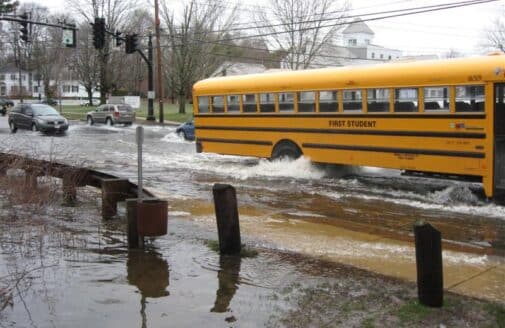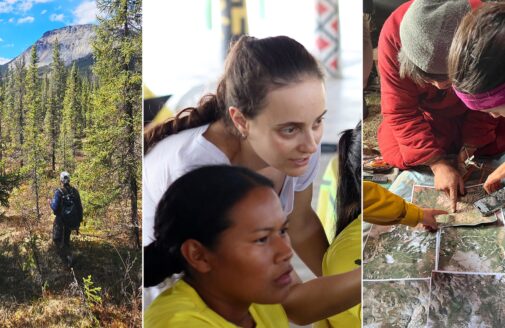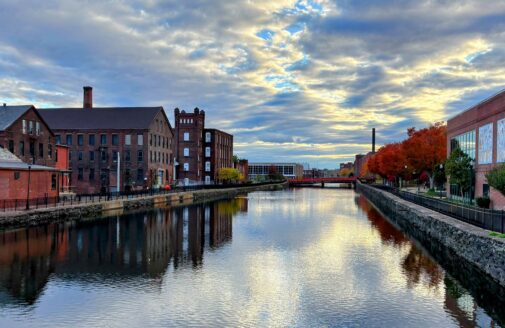Air quality monitoring to machine learning: Fund for Climate Solutions awards six new grants
The 2024 summer cohort of FCS projects drives impact through collaboration and building technical capacity
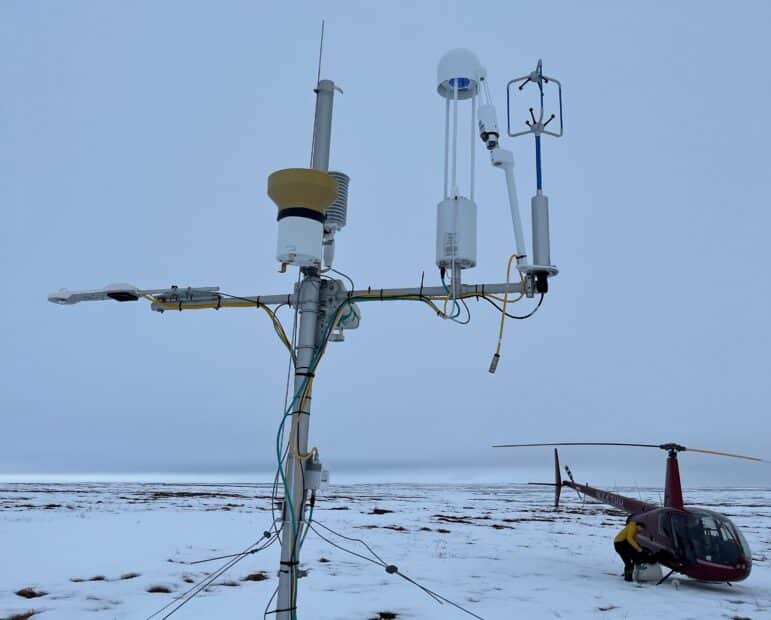
photo by Marco Montemayor
The second round of 2024 Fund for Climate Solutions (FCS) awardees has been announced. The FCS advances innovative, solutions-oriented climate science through a competitive, internal, and cross-disciplinary funding process. Generous donor support has enabled us to raise more than $10 million towards the FCS, funding 69 research grants since 2018. The latest cohort of grantees includes three projects focused on driving impact through collaboration and community-building, and three projects exploring new horizons in technology with timely policy relevance.
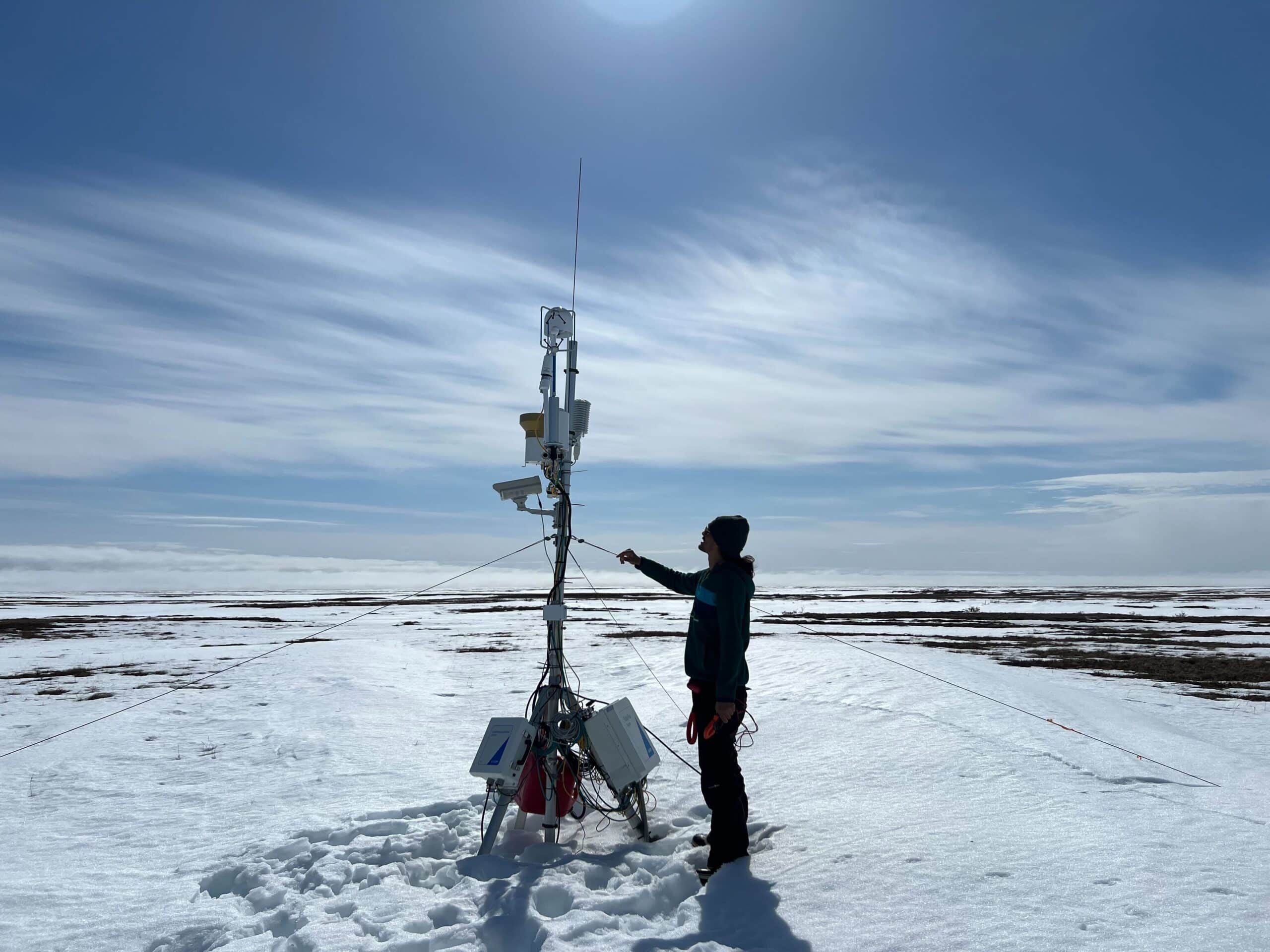
A member of the Permafrost Pathways team performs maintenance on an eddy covariance flux tower in Alaska’s Yukon-Kuskokwim Delta.
photo by Christina Minions
Arctic wildfire pollutants: Towards improving emissions estimates and developing tribally-led monitoring
Lead: Dr. Scott Zolkos
Collaborators: Drs. Brendan Rogers, Sue Natali, Kyle Arndt, Elise Sunderland (Harvard University)
Increasing wildfire activity in northern high-latitude regions is threatening global climate goals and public health. When organic matter in soils and vegetation burns, greenhouse gasses, fine particulates (PM2.5), and contaminants including mercury are released to the environment. Currently, there is sparse data for understanding how wildfires contribute to the northern mercury cycle, as well as gaps in infrastructure for monitoring PM2.5 in Alaska Native communities. This project will develop a network to measure and monitor the release of mercury and PM2.5 from wildfire, with an emphasis on peatlands. Leveraging ongoing work by Permafrost Pathways, the team will install mercury sampling equipment on existing eddy covariance flux towers across Alaska and Canada. Alongside Permafrost Pathways and their tribal partners, the team will also consult with Alaska Native communities in the Yukon-Kuskokwim Delta to co-develop a tribally-led air quality monitoring program.
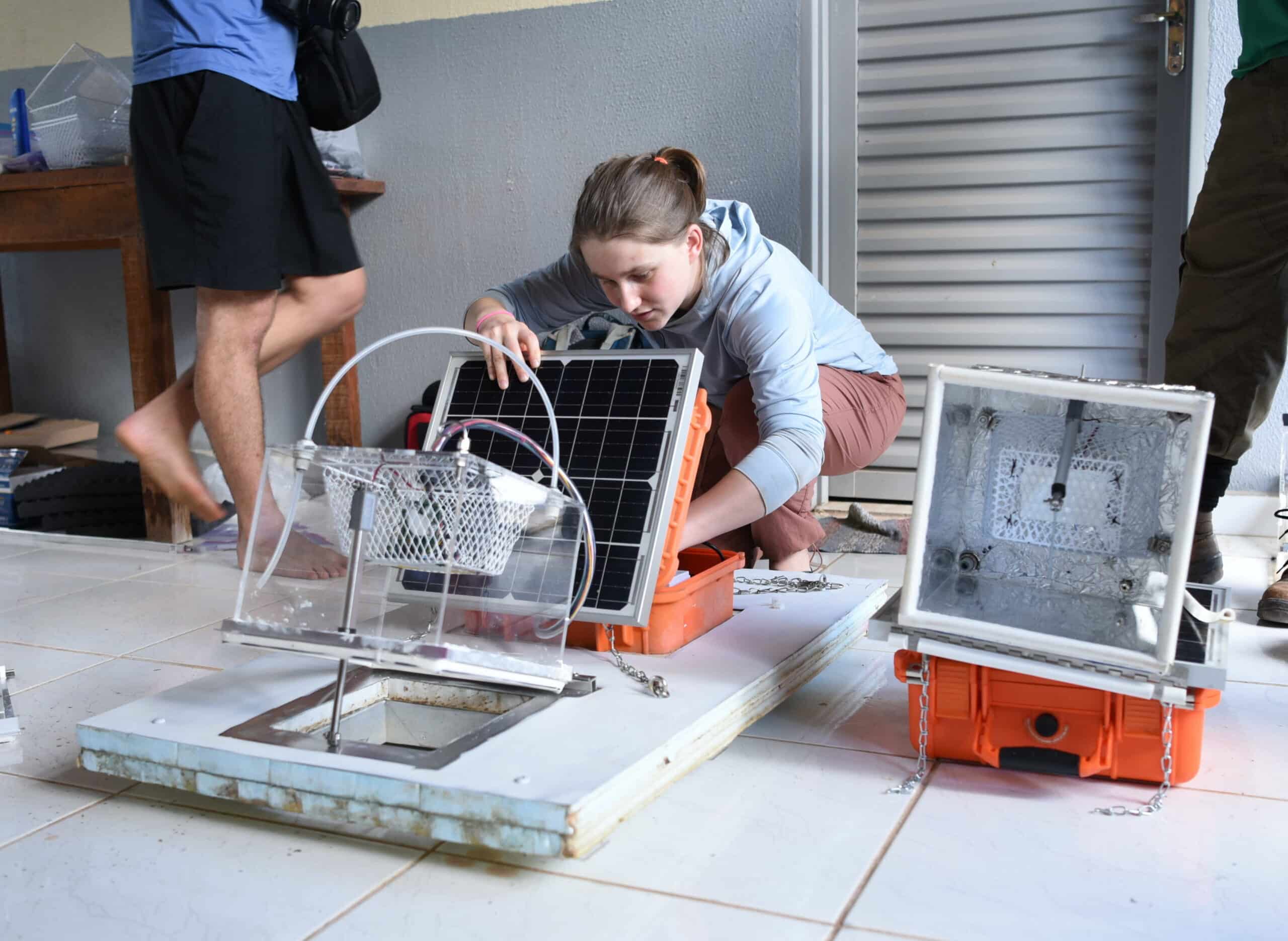
Zoë Dietrich demonstrates her autonomous methane chamber.
photo by Mitch Korolev
Workshop: Innovative sensors and applications in environmental research
Lead: Kathleen Savage
Collaborators: Zoë Dietrich, Dr. Marcia Macedo
Many of the Woods Hole science community’s cutting-edge researchers, including several scientists at Woodwell Climate, are developing creative, do-it-yourself (DIY) tools using relatively simple components to further explore their research questions. However, despite the six institutions’ similar applications and geographic proximity, there are few opportunities for exchange and knowledge, both across Woods Hole institutions and more broadly with Cape Cod educational institutions. The project team will convene a one-day workshop to bring together aquatic, atmospheric, and terrestrial science researchers and educators from the Woods Hole science community and local community colleges. The event will focus on three main themes: development of new sensor systems that use existing technologies in novel ways; new data storage or transmission solutions; and community initiatives to facilitate continued creation and sharing of new technologies. Sessions will foster knowledge exchange, build networks, and develop community resources focused on innovative DIY research solutions, and a hybrid virtual option will be offered for oral presentations to broaden participation.
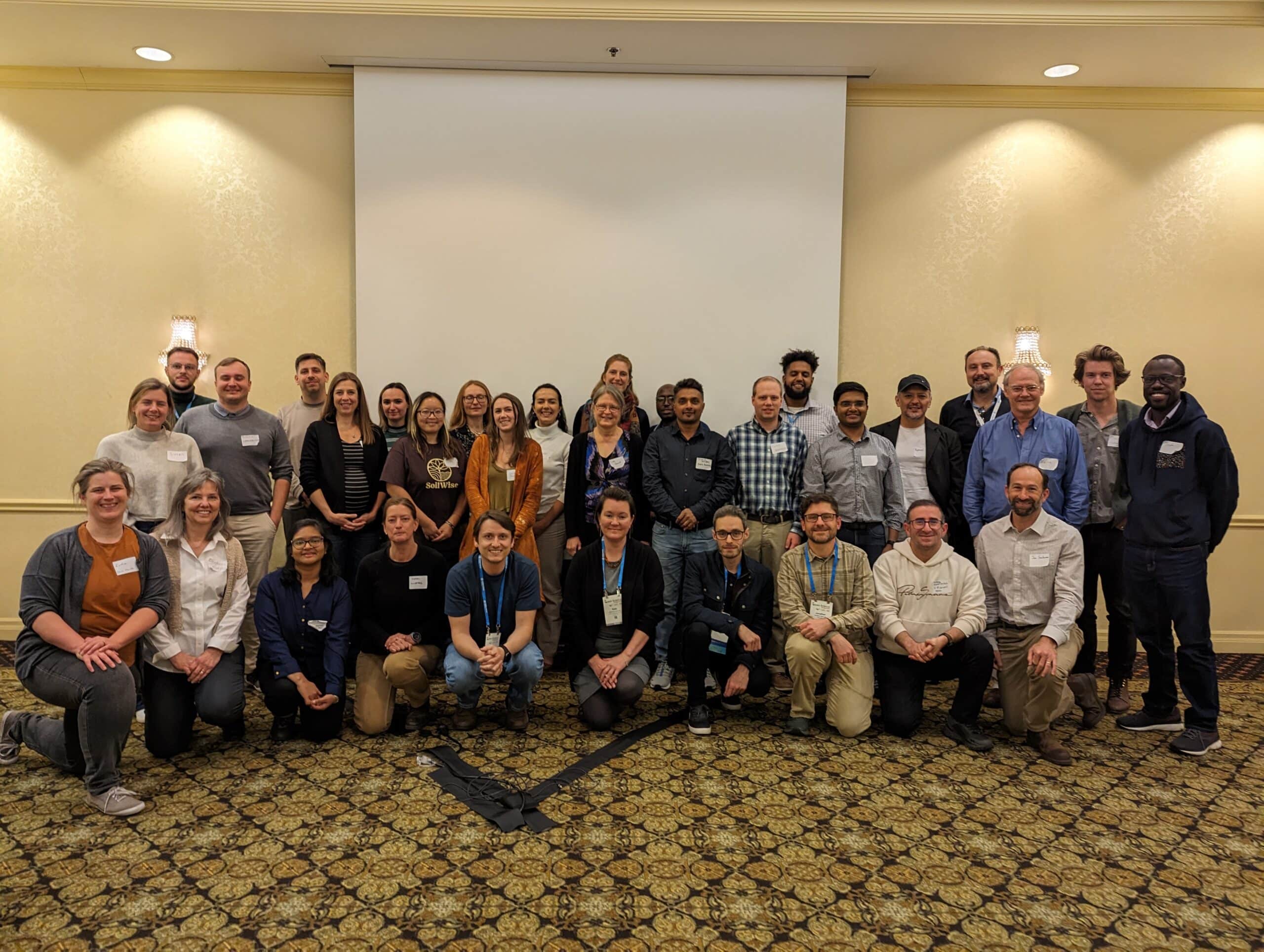
Drs. José Lucas Safanelli and Jonathan Sanderman hosted a Future of Soil Spectroscopy workshop in St Louis, MO, 2023 at the Agronomy, Crop, and Soil Science Society meeting.
photo courtesy of Jonathan Sanderman
Soil Spectroscopy for Global Good network
Lead: Dr. José Lucas Safanelli
Collaborator: Dr. Jonathan Sanderman
The Soil Spectroscopy for Global Good (SS4GG) initiative is a collaborative network of hundreds of soil scientists and others focused on using soil spectroscopy as a means to generate high-quality soil data at significantly reduced costs. It was created in 2020 by the Woodwell Climate Research Center, the University of Florida, and the OpenGeoHub Foundation (the Netherlands) with support from many national and international institutions and researchers. SS4GG created and supports the Open Soil Spectral Library (OSSL), an open source of soil spectroscopy data, and a broad community of practitioners uses the library and collaborates on related science. This award will extend the activities of the SS4GG initiative with a focus on training and further engagement with the soil science community. The project team will continue to add data sets and new models to the OSSL, as well as engage with the soil science community by attending international conferences and providing a training workshop. The funds will also support hosting a visiting soil biogeochemist at the Woodwell Climate campus—Dr. Raj Setia from the Punjab Remote Sensing Center.
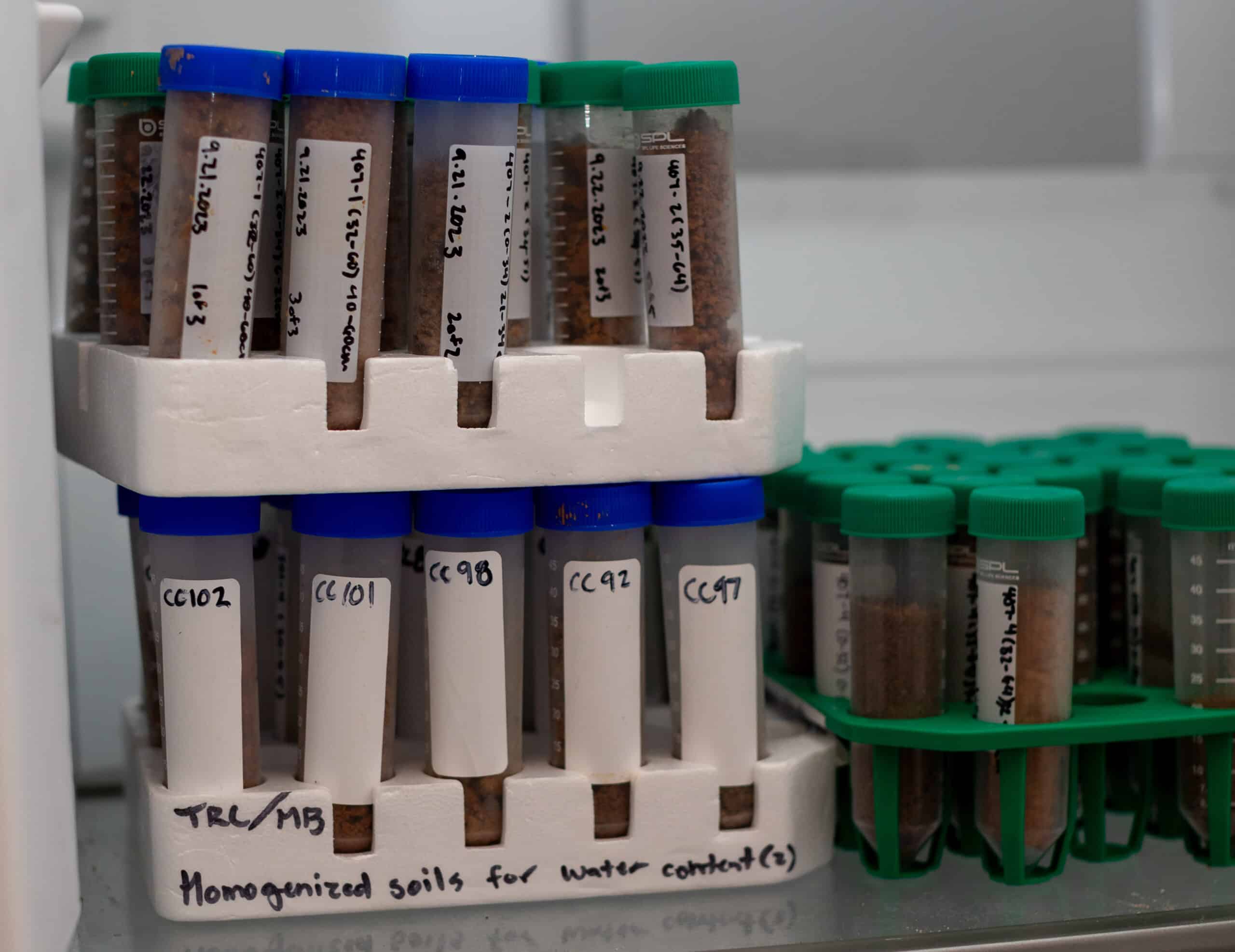
Soil samples in the lab.
photo by Dee Sullivan/MinFin Photography
Pathways of carbon metabolism under cover crops
Lead: Dr. Taniya RoyChowdhury
Collaborator: Dr. Jonathan Sanderman
Sequestering, or capturing carbon in soils has a high potential to mitigate climate change. It is challenging to specifically predict how successful carbon sequestration may be, as current models used to evaluate agronomic management oversimplify soil microbial properties. This project will test for the key pathways of carbon transformations using soil samples taken under cover crops from a long-term study site. The team will quantify the chemical diversity of carbon substrates that microbes in the soil take up, and use data mining to predict the impacts of that diversity on soil carbon sequestration and nutrient cycling. The research outcomes will also lay a foundation for future collaborative research within the Department of Energy scientific community, and the soil health research community more broadly.
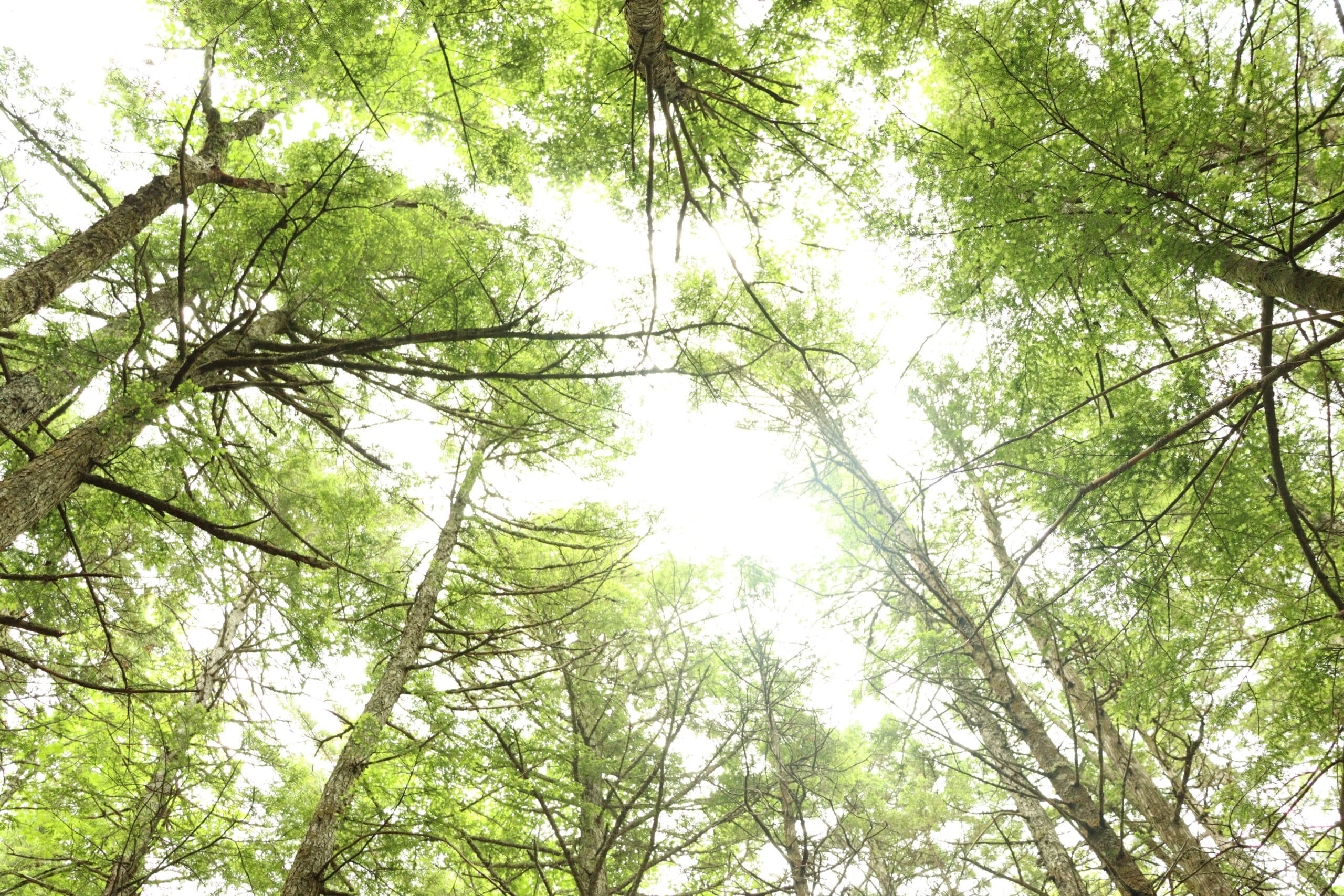
photo by Jonathan Kopeliovich
Bringing confidence to carbon markets through improved monitoring
Lead: Seth Gorelik
Collaborator: Dr. Wayne Walker
The protection, improved management, and restoration of forests are key nature-based solutions to the climate crisis, yet implementation and maintenance of these forest-based solutions requires sustainable and substantial financing. The voluntary carbon market (VCM) has the potential to deliver the necessary level of financing; however, a significant gap exists between its potential and actual performance. Improving the accuracy of forest carbon monitoring is crucial for the VCM to deliver effective, meaningful climate change mitigation. This project will enhance the credibility and effectiveness of forest carbon markets by evaluating new remote sensing methods for measuring forest carbon and showing that these methods provide more robust data than the conventional approach. Research findings could lead to updated global standards and policies for issuing carbon credits, which would increase market confidence and promote sustainable forest management.
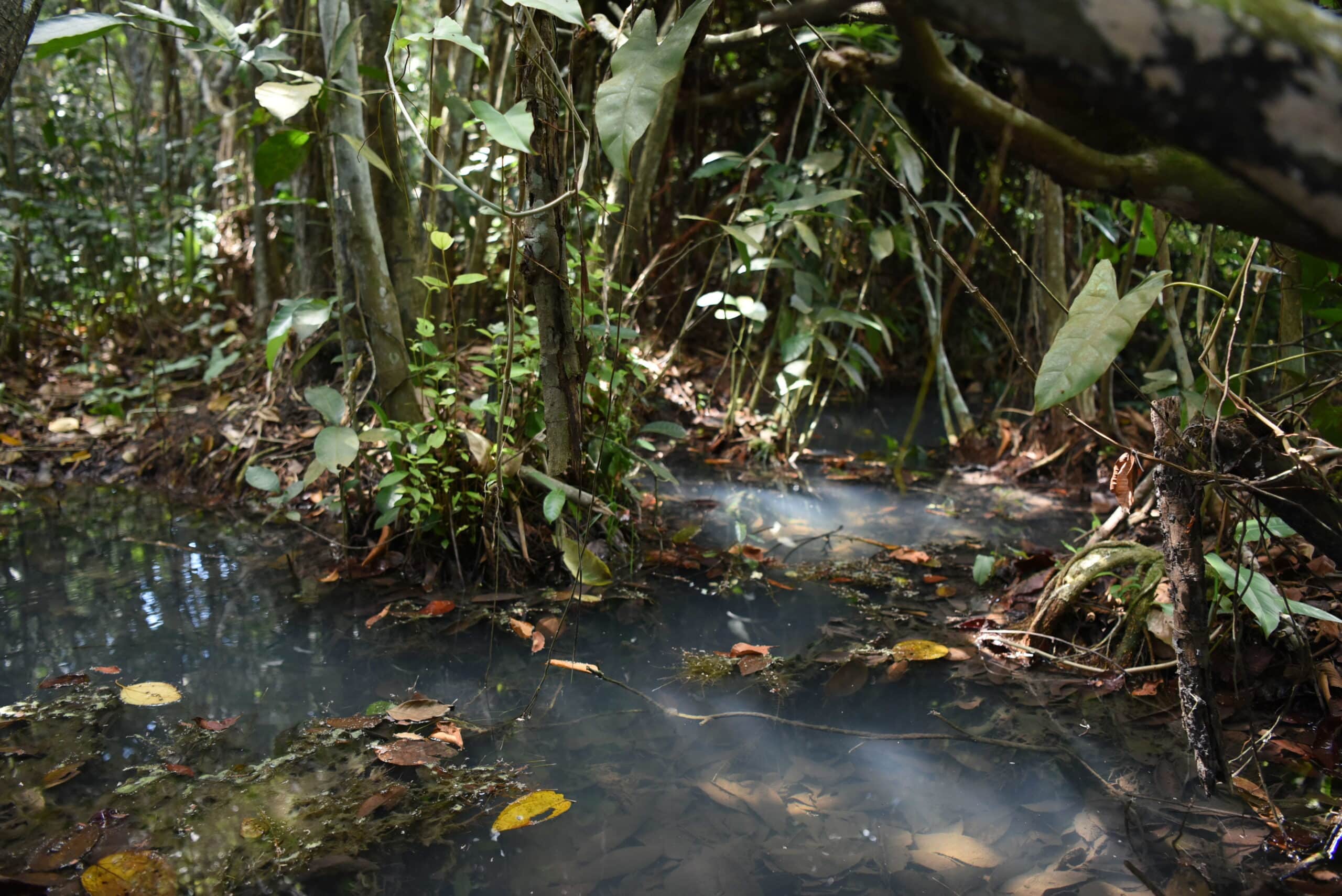
A stream in the Amazon forest.
photo by Mitch Korolev
Applying machine learning models to link river hydrology and fire risk forecasting in the Amazon
Lead: Dr. Andrea D. de Almeida Castanho
Collaborators: Drs. Michael Coe, Marcia Macedo
In recent decades, extreme drought events have increased forest flammability, fire severity, and the likelihood of fire escaping and spreading into adjacent forests and working lands, as illustrated by the wildfires seen throughout Amazonia during the 2023-24 drought. The project team will explore the potential of using river stage (water level) data as a proxy for landscape dryness, to ultimately reveal the short-term risk of wildfires spreading into forests. If confirmed, this innovative hypothesis could provide the scientific basis for developing new metrics of river stage to improve early-warning systems that forecast high fire risk days to weeks in advance. These improvements would create benefits not only for tropical forest protection, but also for biodiversity, greenhouse gas emissions, and human health.




